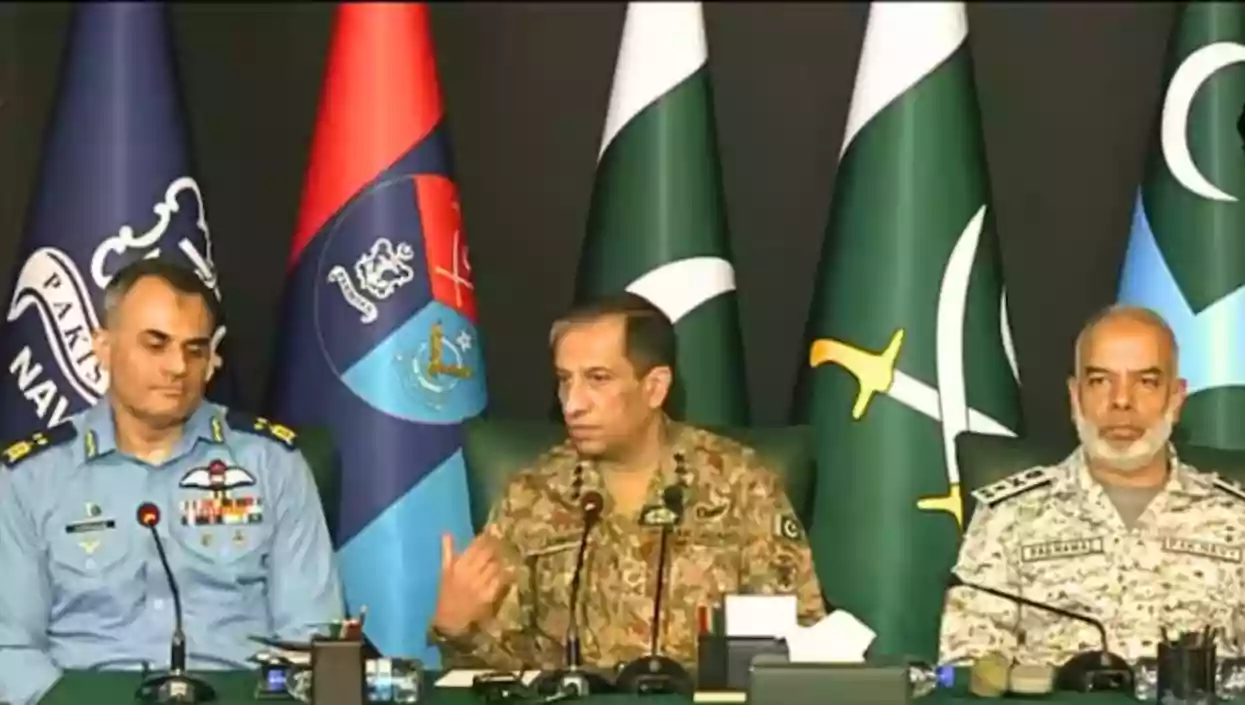.gif)
.gif)

In a dramatic and unprecedented admission, Pakistan’s military has acknowledged its involvement in the 2019 Pulwama terror attack that killed 40 CRPF personnel in India. Speaking at a press conference in Islamabad on Friday, Pakistan Air Vice Marshal Aurangzeb Ahmed described the Pulwama bombing as an act of "tactical brilliance," revealing what India has long alleged — the role of Pakistan’s armed forces in planning and executing the attack.
Aurangzeb, who serves as the Director General of Public Relations for the Pakistan Air Force, made the comment in front of local and international media, flanked by high-ranking officials including DG ISPR Lt Gen Ahmed Sharif Chaudhry. The statement flies in the face of Pakistan’s consistent denials since the 2019 attack, where a Jaish-e-Mohammed (JeM) suicide bomber rammed an explosives-laden vehicle into a CRPF convoy in Pulwama, Jammu and Kashmir.
“We tried to tell them with our tactical brilliance in Pulwama,” said Aurangzeb, further claiming that the act was meant to demonstrate Pakistan's military strength and resolve. The calculated remark seems to come amid global scrutiny over the April 22 Pahalgam terror strike, where Pakistan has again denied involvement despite mounting circumstantial evidence.
The admission dismantles years of Pakistan's diplomatic posturing, which included demands for evidence from India and outright rejection of JeM’s involvement. Ironically, JeM itself had claimed responsibility for the Pulwama bombing, which prompted India to launch airstrikes on its terror training camp in Balakot, Pakistan-occupied Kashmir.
The statement also brings renewed attention to the internal dynamics of Pakistan’s military-political establishment. The presence of Lt Gen Ahmed Sharif Chaudhry — son of nuclear scientist Sultan Bashiruddin Mahmood, once accused of aiding al-Qaida — underscored the military's grip on national security policy. Mahmood himself remains a controversial figure, featuring on a UN terror watchlist.
Though not the first admission — in 2020, Minister Fawad Chaudhry had called the Pulwama attack a “success” — this one comes directly from the Pakistan military, widely regarded as the true power center of the country. It suggests a growing brazenness and shift in posture, possibly in response to India’s recent Operation Sindoor, which dismantled key JeM terror infrastructure.